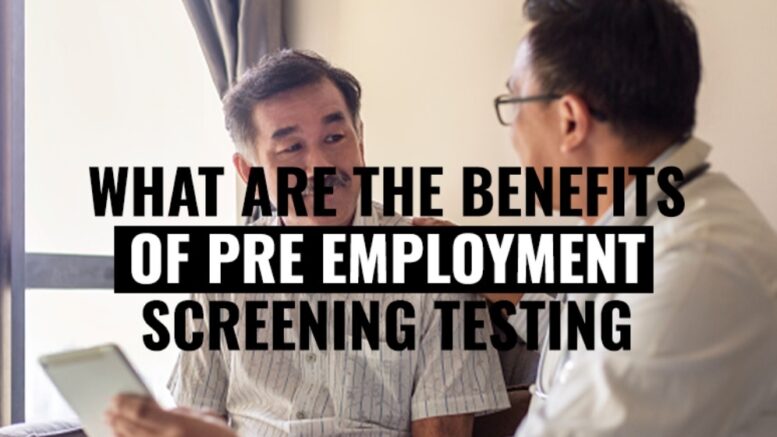In pre-employment screening tests, the job applicant is assessed on his or her skill level, knowledge and abilities relating to the job they are seeking. A variety of pre-employment tests exist, but aptitude tests, personality tests, and skill tests are some of the most common.
A candidate’s aptitude for learning and remembering new information, as well as their ability to solve problems, is measured. They often focus on specific skills that are required for the job, such as mathematical ability or verbal reasoning. Using personality tests, employers can determine whether a candidate is likely to succeed in their job. Skills tests measure a candidate’s proficiency in specific areas, such as typing or computer programming.
Pre-employment screening tests can be very helpful in determining whether or not a candidate is a good fit for the job. As well as identifying areas where a candidate may require additional training, they can also help identify possible weaknesses. Some employers use pre-employment screening tests as part of their selection process, while others use them solely for informational purposes.
The benefits of pre-employment screening tests include:
- They can help to assess a candidate’s skills, knowledge, and abilities.
- They can assist in identifying any areas in which a candidate might require additional training.
- They can be used to select the best candidates for the job.
- They can contribute to improving the quality of the workforce.
- They can help to reduce turnover rates.
- They can help to save time and money.
- They can provide valuable information about a candidate’s suitability for the job.
- They can help to improve the efficiency of the hiring process.
- They can help to ensure that only qualified candidates are hired.
- They can help to create a more diverse workforce.
How to prepare for pre-employment screening tests
Pre-employment screening tests, also known as pre-employment assessments, are tools that employers use to screen job applicants and determine whether they are qualified for a particular position. These tests can measure a variety of skills and abilities, including but not limited to: verbal reasoning, mathematical ability, problem-solving, mechanical aptitude, and personality. In some cases, pre-employment screening tests may also include a physical ability test.

There are many benefits of pre-employment screening tests for both employers and job applicants. It helps employers to hire the best candidates for a job by conducting these tests. They can also help to identify any areas of weakness that a candidate may have, which can be addressed during the training and development process. For job applicants, pre-employment screening tests can help to demonstrate their skills and abilities to potential employers.
Pre-employment screening tests are not without their criticisms, however. There is an argument that some of these tests can lead to bias against certain groups of people, including women and minorities. Additionally, some employers may use these tests as a way to weed out applicants who they feel are not a “good fit” for their company, rather than focusing on the applicant’s qualifications.
Despite the criticisms, pre-employment screening tests can be a valuable tool for both employers and job applicants. When used correctly, they can help to ensure that the best candidates are hired for the job.
What are the types of Pre-Employment Screening tests?
There are many different types of pre-employment screening tests, each designed to measure a specific skill or ability. Some of the most common types of tests include:
- Verbal reasoning: This type of test measures an applicant’s ability to understand and interpret written information.
- Mathematical ability: This type of test measures an applicant’s ability to solve mathematical problems.
- Problem-solving: This type of test measures an applicant’s ability to identify and solve problems.
- Mechanical aptitude: This type of test measures an applicant’s ability to use and maintain machinery.
- Personality: This type of test measures an applicant’s personality traits, such as agreeableness or extroversion.
- Physical ability: This type of test measures an applicant’s physical strength, stamina, and coordination. If you want to know more about various screening tests then visit PCP Works.
